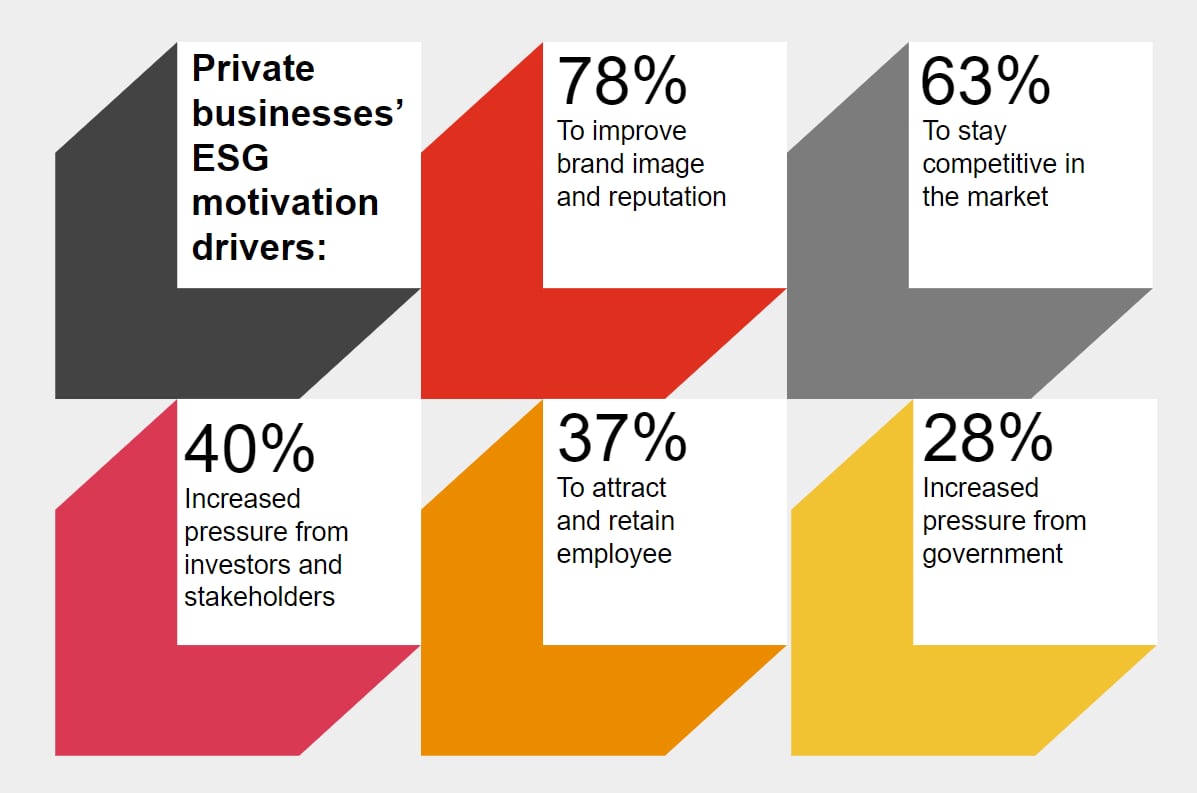
Telling the ESG story
Although private businesses are making progress in sustainability and are keeping up with listed corporations, many are not effectively communicating these efforts to the public. The current stage of ESG governance and reporting in Vietnamese private businesses suggests a lot more to do in ESG reporting.
60% have informal governance structure or no structure on ESG matters (Viet Nam: 51%)
29% have well-defined ESG targets and metrics (Viet Nam: 47%)
82% have no or limited external reporting on ESG matters (Viet Nam: 70%)
Private businesses, particularly family-owned ones, should prioritise ESG reporting. Why? It aligns with their values and provides an opportunity to showcase their achievements, which can differentiate them from others. While the ESG reporting can be complex, they can start small by focusing on key ESG issues relevant to their industry and stakeholders.





















